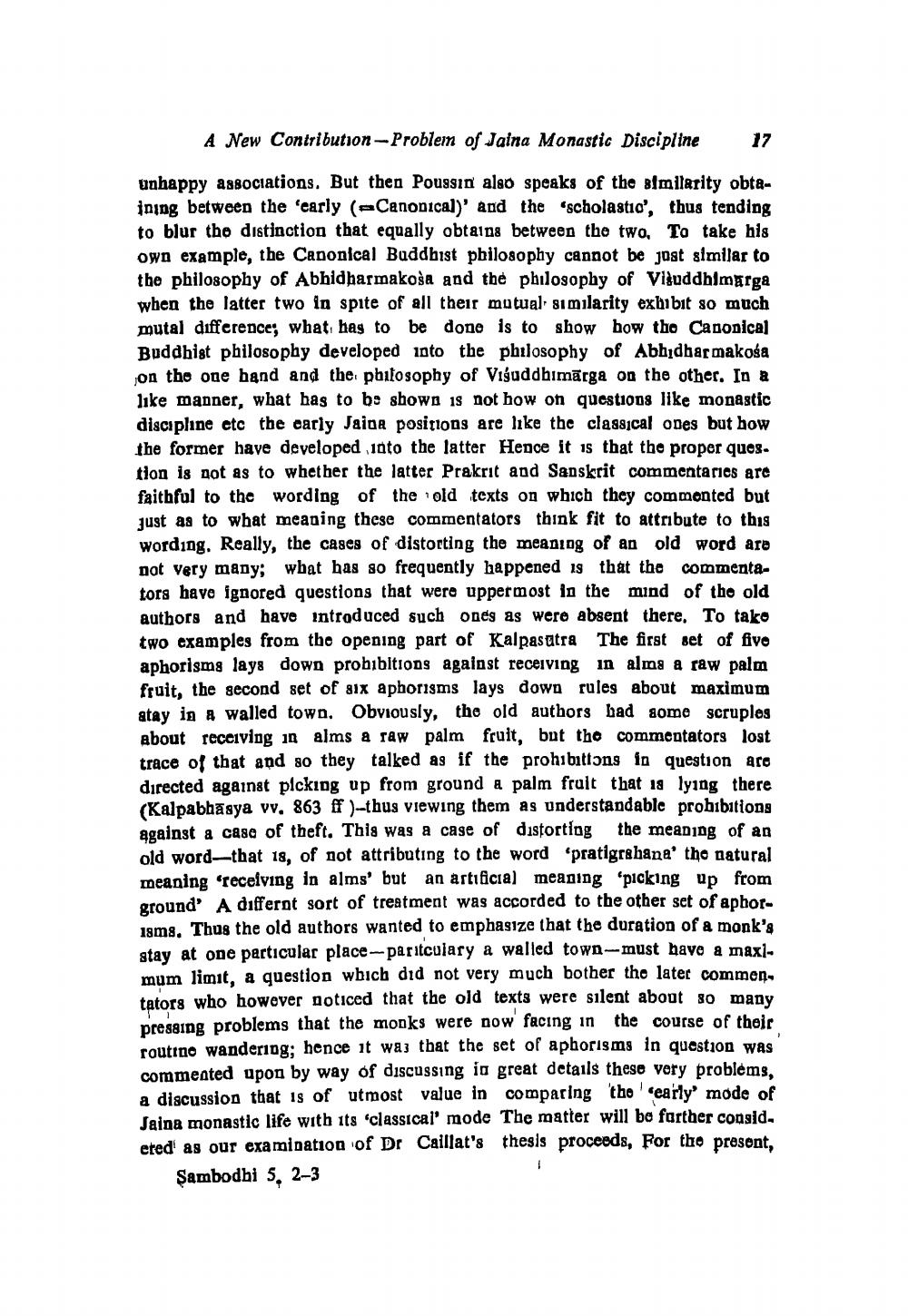________________
A New Contribution - Problem of Jaina Monastic Discipline
17
unhappy associations. But then Poussin also speaks of the similarity obtaining between the early (eCanonical)' and the scholastic', thus tending to blur the distinction that equally obtaing between the two. To take his own example, the Canonical Buddhist pbilosophy cannot be just similar to the philosophy of Abhidharmakosa and the philosophy of Višuddblmarga when the latter two in spite of all their mutual similarity exbibit so much mutal difference; what has to be done is to show how the Canonical Buddhist philosophy developed into the philosophy of Abhidharmakosa on the one hand and the philosophy of Visuddbimārga on the other. In a like manner, what has to be shown is not how on questions like monastic discipline etc the early Jaina positions are like the classical ones but how the former have developed into the latter Hence it is that the proper ques. tion is not as to whether the latter Prakrit and Sanskrit commentaries are faithful to the wording of the old texts on which they commented but just as to what meaning these commentators think fit to attribute to this wording. Really, the cases of distorting the meaning of an old word ara not very many; what has so frequently happened is that the commentators have ignored questions that were uppermost in the mind of the old authors and have introduced such ones as were absent there. To tako two examples from the opening part of Kalpasutra The first set of five aphorisms lays down probibitions against receiving in alma a raw palm fruit, the second set of six aphorisms lays down rules about maximum atay in a walled town. Obviously, the old authors bad some scruples about receiving in alms a raw palm fruit, but the commentators lost trace of that and so they talked as if the prohibitions in question are directed against picking up from ground a palm fruit that is lying there (Kalpabhagya vv, 863 ff )--thus viewing them as understandable prohibitiong Against a case of theft. This was a case of distorting the meaning of an old word—that 18, of not attributing to the word 'pratigrahana' the natural meaning 'receiving in alms' but an artificial meaning 'picking up from ground' A differnt sort of treatment was accorded to the other set of aphor18ms. Thus the old authors wanted to emphasize that the duration of a monk's stay at one particular place-paritculary & walled town-must have a maxlmum limit, a question which did not very much bother the later commen, tators who however noticed that the old texts were silent about 30 many pregging problems that the monks were now facing in the course of their routino wandering; hence it was that the set of aphorisms in question was commented upon by way of discussing io great details these very problems, a discussion that is of utmost value in comparing the early mode of Jaina monastic life with its 'classical' mode The matter will be farther consid. ered as our examination of Dr Caillat's thesis proceeds, For the present.
Sambodhi 5, 2-3




